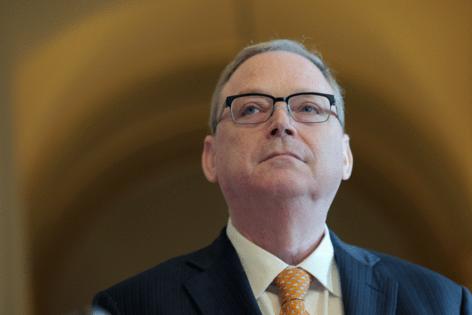US, China hold trade talks in London to address export curbs
Published in News & Features
Trade talks between the United States and China stretched on in London, with the U.S. signaling a willingness to remove restrictions on some tech exports in exchange for assurances that China is easing limits on rare earth shipments.
The meeting, which began Monday afternoon, extended into the evening in the United Kingdom and may restart Tuesday if necessary. Bags of food from the upscale eatery Ottolenghi were brought into the building where negotiators were holding discussions.
The Trump administration expects that “after the handshake” in London, “any export controls from the U.S. will be eased and the rare earths will be released in volume” by China, Kevin Hassett, head of the White House’s National Economic Council, told CNBC.
Hassett’s comments from Washington were the clearest signal yet that the U.S. is willing to offer such a concession, though he added that the U.S. would stop short of including the most sophisticated U.S. chips made by Nvidia Corp. used to power artificial intelligence.
Specifically, the Trump administration is prepared to remove a recent spate of measures targeting chip design software, jet engine parts, chemicals and nuclear materials, people familiar with the matter said. Many of those actions were taken in the past few weeks as tensions flared between the United States and China.
“The very, very high-end Nvidia stuff is not what I’m talking about,” Hassett said, adding that restrictions would not be lifted on the Nvidia H2O chips that are used to train AI services. “I’m talking about possible export controls on other semiconductors which are also very important to them.”
U.S. stocks inched higher midday Monday New York time, as some investors expressed optimism the talks signaled a cooling of trade brinkmanship.
The first round of negotiations since the teams met a month ago is aimed at restoring confidence that both are living up to commitments made in Geneva. During those discussions, Washington and Beijing agreed to lower crippling tariffs for 90 days to allow time to hammer out ways to address a trade imbalance that the Trump administration blames on an unfair playing field.
The confusion after the Geneva meeting about China’s rare earth export-permitting process, combined with U.S. limits on tech shipments and Washington’s recent crackdown on Chinese student visas, underscore the complexity of deal-making between China and the U.S.
“They left too many things open to interpretation,” said Josh Lipsky, chair of international economics at the Atlantic Council. The U.S. and China “just want to get back to where they were in Switzerland with a few more agreements down on paper to actually understand what is gonna be licensed, what gets permitted, what doesn’t,” he added.
A phone call last week between President Donald Trump and his counterpart Xi Jinping appeared to give fresh momentum to reviving talks and reaching a deal.
U.S.-China trade tensions escalated this year as Trump hiked duties on Chinese goods, prompting retaliation from Beijing. That has led to pain in both economies, including distortions in data and uncertainties for businesses trying to navigate sudden changes in trade policy.
Earlier Monday, Chinese government figures showed exports rose less than expected last month as the worst drop in shipments to the U.S. in more than five years counteracted strong demand from other markets.
In the U.S., job growth moderated in May and the prior months were revised lower, indicating employers are cautious about growth prospects. Trump’s tariffs are causing uncertainty and delays for U.S. manufacturers, particularly in the Midwest, which is affecting their investment and production plans.
_____
(With assistance from Annmarie Hordern, Kasia Klimasinska, Hadriana Lowenkron, Jennifer A. Dlouhy and Mackenzie Hawkins.)
©2025 Bloomberg L.P. Visit bloomberg.com. Distributed by Tribune Content Agency, LLC.







Comments